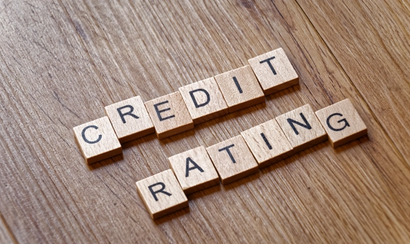Cash-Out Refinance FAQs: 11 Questions to Ask
Written by:
Marianne Hayes
Marianne Hayes
Personal Finance Writer
Marianne Hayes is a contributing writer for Own Up. She has been covering personal finance and home ownership for over a decade.
See full bio
Fact Checked by:
Mike Tassone
Mike is a Co-Founder and Chief Operating Officer of Own Up. He has expertise in all areas of residential lending, having led operations for a top 40 lender in the United States.
See full bio

Fast Links
- 1. What is a Cash-Out Refinance?
- 2. Is a Cash-Out Refinance Mortgage Loan Worth It?
- 3. What Are My Financial Goals with a Cash-Out Refinance?
- 4. How Much Equity Do I Have in My Home?
- 5. What Is My Credit Score?
- 6. What Are the Current Loan Interest Rates?
- 7. How Long Will It Take Me to Break Even on My Refinance?
- 8. What Are the Closing Costs Associated With Cash-Out Refinancing?
- 9. What Type of Loan Term Should I Choose for a Cash-Out Refinance?
- 10. How Will Cash-Out Refinancing Affect My Taxes?
- 11. What Documents Do I Need to Provide for a Cash-Out Refinance Loan?
- The Bottom Line
Refinancing a mortgage can have its benefits. If interest rates are on the decline, starting fresh with a new home loan could save you a substantial amount of money in the long term. Restructuring your mortgage could also result in a lower monthly payment. There are even mortgage refinance loans that allow you to access cash in exchange for taking out a larger loan.
There are definitely perks to refinancing, but a mortgage refinance — especially a cash-out refinance loan — isn’t for everyone. Here are 11 important questions to ask yourself before deciding if a cash-out refinance loan is right for you.
1. What is a Cash-Out Refinance?
A cash-out refinance is a type of refinance loan that allows you to borrow more than your current mortgage balance. You can keep the difference as a lump-sum payment and use those funds for virtually any reason. However, your new loan amount will be higher than what you previously owed on your original mortgage.
2. Is a Cash-Out Refinance Mortgage Loan Worth It?
A cash-out refinance loan can come in handy for home improvements or if you are experiencing a financial emergency and need cash quickly. However, you can expect a higher monthly payment. At the same time, a cash-out refinance may be worth it if you can get a similar interest rate to that on your original loan.
If you have to borrow money, a cash-out loan might be the cheapest way to do it. You'll still need to cover closing costs (often deducted from your cash-out amount), but interest rates on other types of personal loans can be high.
You might also be able to borrow more. With a cash-out refi, you can typically borrow up to 80% of your home's value, according to Experian. Just keep in mind that your home will be used as collateral. If you default on your monthly mortgage payments, you could face foreclosure.
3. What Are My Financial Goals with a Cash-Out Refinance?
Cash-out refinancing can free up cash you could put directly toward your goals. On the flip side, the cost of borrowing could delay your progress on those goals—and possibly negate the benefits of refinancing. It's wise to look at the bigger picture before deciding to refinance.
Before moving forward, ask yourself why you’re considering a cash-out refinance in the first place. That may include:
- Setting money aside for an upcoming vacation or home renovation project
- Paying down debt
- Covering your children's college education
- Saving for retirement
- Starting a business
4. How Much Equity Do I Have in My Home?
Your home equity represents the amount of your home that you actually own. You can calculate it by taking your home's appraised value and subtracting the amount you owe on your mortgage. For example, if your home is appraised for $500,000 and your mortgage balance is $200,000, you have $300,000 in equity (or 60%).
Every lender has its own minimum home equity requirements, but many will require you to have at least 20% equity after deducting your new loan amount from your home value to qualify for a cash-out refinance.
5. What Is My Credit Score?
If you're thinking about refinancing, your credit score will be an important factor that mortgage lenders consider. This three-digit number gives them an idea of how trustworthy you are as a borrower. A strong credit score shows that you have a history of paying your bills on time and making good on your credit accounts.
The opposite is also true. If you have less-than-perfect credit, that could make it harder to qualify for a refinance loan. The better your credit score, the more likely you are to get the best rates and loan terms.
Lender requirements vary, but you'll probably need a minimum credit score of 620 to refinance to a conventional loan. But with an FHA refinance loan, it's possible to get approved with a score as low as 580, or in some cases, lower.
6. What Are the Current Loan Interest Rates?
Mortgage rates are constantly in flux. They're correlated to the 10-year treasury rate, which is the current rate that is paid on U.S. government bonds. When this rate goes up or down, rates on mortgages typically do, as well.
Mortgage rate trends play a huge role in determining whether it makes sense to refinance. The ideal situation is taking out a new loan that has a lower interest rate than your current mortgage. Even after paying closing costs, that rate reduction could save you a significant amount of money over the life of the loan. But if current interest rates aren't that much lower than what you have now, you'll want to weigh the costs against the savings.
7. How Long Will It Take Me to Break Even on My Refinance?
Before refinancing, take a minute to calculate your break-even point. This is the amount of months it will take you to recoup the costs associated with refinancing. To figure it out, take your estimated closing costs and divide that total by the amount you'll save on your mortgage payment each month.
For example, let's say your closing costs would be $10,000 and your new monthly payment would be $80 cheaper than what you're paying now. That means your break-even point is 125 months, or a little over 10 years.
What’s tricky about cash-out refinancing is that your monthly mortgage payment will likely increase. It might still be worth it if you plan on staying in your home long term. But if you see yourself moving in the near future, cash-out refinancing might not be worth it.
8. What Are the Closing Costs Associated With Cash-Out Refinancing?
Closing costs are one-time expenses that are typically paid when you finalize the new loan. Just as you paid closing costs on your current mortgage, you can expect the same for a cash-out refinance loan. The amount will vary depending on the lender and loan type, but it typically ranges anywhere from 3% to 6% of the principal balance.
For example, if you're taking out a loan for $200,000, you could be on the hook for up to $12,000 in closing costs (or up to 6% of the loan). You may have the option to roll closing costs into your new mortgage. Just be aware that doing so means you'll pay interest on your closing costs.
When deciding whether or not to refinance, be sure to consider these expenses. Closing costs may include:
- Loan origination fee
- Appraisal fee
- Credit report fee
- Tax service fee
- Attorney fee
- Title search fees
- Mortgage points (additional money you pay upfront to reduce your interest rate)
9. What Type of Loan Term Should I Choose for a Cash-Out Refinance?
Mortgages are generally available in 15- or 30-year terms. When refinancing, you may choose to change your term. Opting for a shorter term will result in a larger monthly payment, but you'll pay less in the long run. A longer term stretches out the life of the loan and can result in a more manageable monthly payment. The caveat is that you'll pay more interest from start to finish.
Run the numbers to calculate the total savings of a 15-year mortgage versus a 30-year term. You'll also want to think about your finances and how much you can afford to spend on your mortgage payment each month. A shorter term may be attractive, especially since you'll pay off your loan faster, but it could strain your budget.
10. How Will Cash-Out Refinancing Affect My Taxes?
If you complete a cash-out refinance loan, the IRS says you may be able to deduct interest paid on the amount of the loan that was used to make home improvements for increasing your home value. And like home equity loans, the money you receive from a cash-out refi isn't considered taxable income.
Generally, when you file your annual tax return, you may have the choice to itemize your deductions or take the standard deduction. If itemizing, the IRS says you can deduct your mortgage interest on your federal tax return. If you don’t itemize, the standard deduction amount may be higher for you.
In 2025, the standard deduction is:
- $15,000 for single people or married folks filing separately
- $30,000 for married couples filing jointly
- $22,500 for those filing as head of household
11. What Documents Do I Need to Provide for a Cash-Out Refinance Loan?
The lender will want to verify important details about your financial life. That includes your income, employment, assets and debts. Be prepared to provide the following documentation when refinancing a mortgage:
- Photo ID
- Proof of U.S. residency
- Two years of W-2s (or tax returns if you're self-employed)
- Pay stubs from the last 30 days
- All bank statements for the last two months
- Most recent mortgage statement
Remember that this is a general list. Be sure to clarify with your lender everything you’ll need to complete your application and close on your cash-out refinance loan.
The Bottom Line
Cash-out refinancing is a big decision that will affect other parts of your financial life. That's why it's important to do your research beforehand to determine if it's the right move for you. Answering the questions above can be a good jumping-off point. It's also wise to compare refinance lenders and shop around for the best rates and terms. In the end, your unique financial situation will lead the way.


